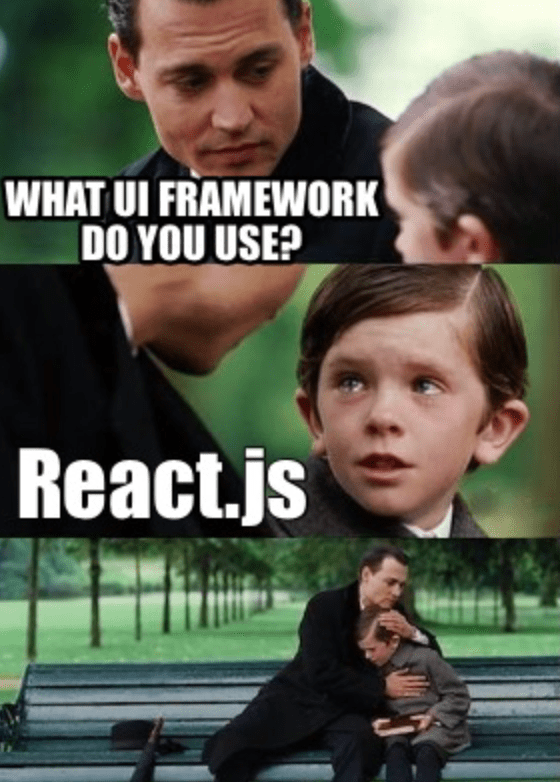
Is Angular license free?
Is Angular truly license-free? Does this opensource framework come with any hidden costs or conditions? What are the implications for individuals or businesses intending to utilize Angular for their development work? These thought-provoking questions give us an insight into the important topic at hand. Whether you’re a developer, a start-up founder, or an entrepreneur who’s aiming to cut development costs, understanding the licensing terms of the software you use is crucial.
We live in a world where the licensing policies of software can significantly impact its usage. The topic of whether Angular is license-free becomes a critical one because, as per authoritative sources like StackShare and BuiltWith, Angular has a predominant usage in the tech stack of companies from different sectors. In addition, a survey conducted across the USA revealed that 30% of the participating companies are already using this framework. Therefore, understanding the licensing policies can serve as a bridge to utilize this powerful tool adequately and lawfully.
In this article, you will acquire information on whether Angular is license-free or not. It further elaborates on what these licensing terms are, how they impact the users, and what considerations businesses and individuals should keep in mind while using Angular. The article also digs into comparative studies of Angular’s licensing policies with other popular frameworks, providing you with an informed view of its benefits and potential drawbacks.
After engaging with this article, you will both gain knowledge of Angular’s licensing conditions and develop a perspective on licensing issues in software development. Whether you wish to use Angular for your projects, or make informed decisions about technology adoption for your organization, this article can guide your way.

Definitions and Meanings of Angular’s License-Free Status
Angular is an open-source platform used for building web applications. Open-source means that the source code of the software is freely accessible, usable, and modifiable by anyone. When a tool or software is said to be license-free, it implies that users can use, copy or distribute the software without any legal restrictions or payment. Hence, ‘Angular being license-free’ refers to the fact that it is freely accessible and can be used by anyone without incurring any cost. The benefit of Angular’s license-free status is that it encourages a larger community of programmers to use and contribute to its development, improving the software’s rich features over time.
Unraveling the Mystery: Is Angular Really License Free?
Angular is a highly popular open-source framework used by developers all over the world for creating dynamic and scalable web applications. Maintained by Google, Angular comes with robust features such as two-way data binding, dependency injection, and the modular architectural design, that make the development process smoother and faster. With Angular, you have abstracted complexities at your disposal, including automatically maintained DOM and JavaScript code, making the development process more manageable and efficient.
Understanding Angular Licensing
Angular’s source code was released under the MIT license from the start, which means it is free for both personal and commercial use. The MIT license is a permissive free software license originating at the Massachusetts Institute of Technology. This kind of license puts only very limited restrictions on the redistribution of all open-source software, within the software’s license. Therefore, you are free to use, modify, and distribute Angular applications without worrying about licensing requirements. This freedom has been a significant driver in the widespread adoption and popularity of the Angular framework.
The Benefits of Angular’s Freedom License
The freedom provided by the Angular license offers numerous benefits that have contributed significantly to the framework’s popularity. Such flexibility allows developers and organizations to effortlessly create applications with Angular, making the framework a powerful tool for single-page applications that need to be highly responsive and versatile.
- Unhampered Application Development: The freedom of the Angular license stimulates creativity because developers and businesses alike can use, modify, and share their code freely. This allows anyone to apply Angular’s power to their applications, without any concern of legal backlash.
- Community Collaboration: The open-source nature of Angular under the MIT license fosters a strong community spirit. Developers can contribute to the code base, improve the framework and share their improved code with others. This culture of collaboration leads to a rapidly evolving and improving framework.
- Commercial Use: With the MIT license, businesses are free to use Angular for commercial use without concern for owning a license or worrying about associated fees. This makes Angular an extremely business-friendly framework, opening the door for more organizations to create advanced applications with full freedom.
The flexibility and freedom of the Angular license have enabled a vibrant ecosystem of developers and enterprises using the framework in various industry verticals. From small startups to large corporations, all can take full advantage of this powerful tool without concerns about license limitations or associated costs. This paves the way for advanced and responsive applications, contributing to the scalability and robustness of our digital world.
License Dilemma: Grasping the Reality of Angular’s Licensing
Are we Really Free to use Angular?
Is it true that Angular, the popular web application framework developed by Google, can be used without any strings attached? This issue has been shrouded in misconceptions for a long time. To spell out clearly, yes, Angular is license free. It is published under the MIT license that grants the right to use, copy, modify, merge, publish, distribute, sublicense, and even sell copies of the Software. It maintains substantial leverage over other names in the industry by offering this high degree of freedom without charging a single penny to its users. Their objective is to provide a utility tool for developers around the world to create web applications with ease, while fostering a sense of community and collaboration within the developer universe.
The Myth that clouds the Facts
The main problem appears to be the sporadic confusion that surrounds the understanding of what an MIT license entails. Predominantly, among budding developers and enterprises venturing into the domain of web development. This largely stems from the mistaken belief that any product associated with a commercial entity like Google would logically command a fee for its usage. While the MIT license does indeed allow Angular’s source code to be modified and redistributed, it is essential to note that any software or derivative work which includes or is derived from Angular should include a copy of the original MIT license. Essentially, if you’re using Angular for your own project, it is free. However, if you’re planning on selling a product that includes Angular in some form, you do need to include the MIT license within your product.
Angular Best Practices in View of the License
Unraveling best practices in the light of the Angular license, several successful implementations can be observed. A ubiquitous use of Angular, owing to its free license, can be seen in building Single Page Applications (SPA). Devoid of any licensing cost, developers have been crafting myriad internet applications, implementing modules, components, and services strategically to construct more dynamic and robust solutions. Many have been seen to strategically utilize the feature of reusable codes in Angular to limit their work, save time while maintaining the code’s integrity. Moreover, with the Angular license free tag, large corporations have adopted it as their primary framework for extensive projects. This includes renowned names such as Weather.com, Forbes, IBM, and Delta Airlines who have exploited the license-free usage of Angular and developed superlative web applications, reinforcing its credibility universally.
In Depth: Angular and Its Surprising Licensing Terms
Is the Angular License Truly Free?
Are we aware of the conditions Angular services come with, despite being presented as ‘free’? Delving deeper into the world of the Angular license helps us understand that its usage does come with conditions, albeit not monetary per se. Angular is indeed free to use but users should keep in mind their observance of open-source agreement, which essentially means that anyone is free to use, modify, and distribute the original source code. They are, however, obligated to make the altered code available to the public under the same agreement.
Deeper Issues Surfaced
This feature of Angular is both a boon and a bane. While the freedom to modify the code fosters an environment of creativity and innovation, it gives rise to issues of ownership, accountability, and in some cases, security. For instance, the modified code is then made available to the public and the original author has no control over the various changes made to it and therefore, cannot be held accountable for any discrepancies that arise due to a modified version. Another potential issue could be a question on the security of these publicly available codes. In a world where technology is a two-edged sword, publicly available and modifiable code could potentially be exploited, leading to diverse security issues.
Guidelines for Best Practices
Execution is key to exploiting Angular’s full potential while circumventing the challenges identified above. As a rule of thumb, it is crucial to adopt secure coding practices. Particular attention should be paid to avoid injection attacks, which can execute malicious scripts. Cross-Site Scripting (XSS) is a common attack that Angular is immune to, but being aware and ensuring its security is the developer’s responsibility.
Another best practice to consider is the removal of dead codes. Keeping unnecessary codes can lead to confusion, making auditing difficult and adding unnecessary overheads.
Moreover, adapting to Automated unit tests will improve the quality of the software and reduce bugs in production. It provides a way to prove that your code is correct, and it can help diagnose and fix bugs quicker. By following the best practices and guidelines, users will be able to safely and optimally exploit the benefits of Angular’s free licensing.
Conclusion
Have you ever pondered often about whether Angular is a free-for-use platform or if it carries a hidden usage cost? After diving deep into the subject matter, it emerges that Angular, developed and maintained by Google, indeed is an open-source web development platform, which means it’s absolutely license-free. The broader significance stretches beyond the cost aspect. It provides developers with the flexibility and liberty to experiment, innovate, and refine their web development skills. This applies to both individual developers and organizations seeking to streamline their applications. The open-source nature particularly promotes a host of community-driven improvements and add-ons, adding to the vitality of the platform.
We heartily encourage you to stay connected with our blog posts and get the latest scoop on topics related to Angular and other related web development platforms. By joining our growing community of tech enthusiasts, you can have first-hand access to trending topics, in-depth analyses, and innovative solutions in the sphere of web development. We share a passion for unraveling the complexities of technology and putting forth easy-to-understand and implement solutions. To keep yourself apprised of our latest posts, simply hit the subscribe button and stay ahead of the curve in the ever-evolving world of technology.
Finally, it’s always beneficial to keep an eye on the horizon for newer releases of Angular. Given Google’s reputation for constant innovation, it’s assured that they’ll come up with improved iterations that address user feedback, include newer functionalities, and attempt to increase productivity and ease of use. So, let’s keep our fingers crossed and wait for these exciting updates to unfold. We promise to keep you informed and equip you with the necessary knowledge to thrive in your technology journey. Remember, in this digital age, your ability to adapt and learn drives your success.
F.A.Q.
FAQs about Angular Licensing
1. Is Angular license free?
Yes, Angular is free to use. It is open-source software, which means you can freely use, modify or distribute it under the MIT license.
2. What does the MIT license that Angular is under entail?
The MIT license is a permissive free software license. This means it allows users to do anything they want with the software as long as they provide attribution back to the creator and don’t hold them liable.
3. Can I use Angular for commercial projects for free?
Yes, you can use Angular for commercial projects under the MIT license. There are no charges for using Angular in commercial or private projects.
4. Are there any restrictions with using Angular because of its Open Source license?
There are virtually no restrictions. However, the code must include the original copyright and license notice if any part of it is distributed.
5. Is there any support provided by Angular for free?
Angular provides a wealth of resources for free, such as documentation, tutorials, and forums, but does not have formally dedicated support for users.
